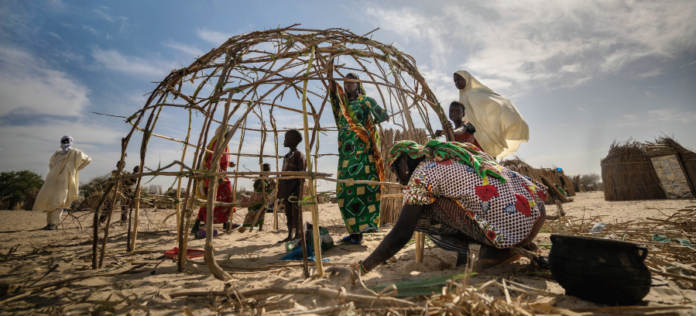A recent study by Eneh, et al. (2024) titled “Evaluating environmental legislation on disaster resilience: Data insights from Nigeria and the USA” published in the World Journal of Advanced Research and Reviews, shows that Nigeria faces significant challenges in enforcing environmental legislation due to institutional weaknesses, corruption, and inadequate resources.
“
Nigeria struggles with enforcing environmental laws due to institutional weaknesses, unlike the USA, which has stronger disaster resilience.-Eneh, et al. 2024
The study explores the role of environmental legislation in bolstering disaster resilience, offering a comparative analysis between Nigeria and the United States. By examining how these countries’ legislative frameworks influence disaster preparedness, response, and recovery, the study aims to shed light on the effectiveness of their environmental laws.
The analysis delves into key areas such as regulatory compliance, enforcement mechanisms, stakeholder engagement, and institutional capacity. It uncovers significant differences between the two nations. In the United States, the legislative framework for environmental protection and disaster resilience is more structured, with well-established systems for enforcement and compliance. This has led to a more robust approach to managing environmental risks and responding to disasters. In contrast, Nigeria faces substantial challenges in enforcing its environmental laws. The study highlights issues such as weaker regulatory frameworks, limited institutional capacity, and lower levels of stakeholder engagement. These challenges undermine the country’s ability to effectively prepare for and respond to environmental disasters, leading to gaps in disaster resilience. By comparing these two nations, the study emphasizes the disparities in how environmental legislation is implemented and its impact on disaster resilience. It suggests that while the United States benefits from a more organized and enforceable legal framework, Nigeria must address significant hurdles to improve its disaster preparedness and response capabilities. This comparison underscores the importance of strong environmental governance in enhancing a nation’s resilience to disasters.
How the Study was Conducted
The authors reviewed existing literature on environmental legislation, disaster resilience, and related policies in both countries. Data was gathered from various sources, including government reports, academic articles, and international databases.
Interviews and Surveys: Stakeholders such as policymakers, environmental experts, and community leaders were interviewed to gain insights into the practical implementation of laws. Specific case studies of past disasters in both countries were analyzed to understand the effectiveness of legislative frameworks. The data was compared to identify differences and similarities in legislative approaches and their impact on disaster resilience. The effectiveness of the legislation was evaluated based on criteria such as regulatory compliance, enforcement mechanisms, and institutional capacity.
What the Authors Found
The authors found that Nigeria faces significant challenges in enforcing environmental legislation due to institutional weaknesses, corruption, and inadequate resources. In contrast, the USA has more robust regulatory mechanisms and enforcement practices.
The authors also found that in Nigeria, communities remain vulnerable to recurrent disasters, exacerbating socio-economic disparities and environmental degradation. The USA shows greater resilience and adaptive capacity due to effective disaster preparedness and response measures. Both countries need to strengthen institutional capacity, enhance public awareness, promote sustainable practices, and foster international cooperation to bolster disaster resilience.
Why is this Important?
Policy Improvement: By highlighting the gaps in Nigeria’s environmental legislation and enforcement, the study provides a roadmap for policymakers to strengthen laws and improve disaster resilience.
Global Relevance: The comparative analysis with the USA offers valuable insights that can be applied to other countries facing similar challenges, promoting global best practices.
Community Impact: Understanding the effectiveness of environmental laws helps protect vulnerable communities from the adverse effects of disasters, thereby improving their quality of life.
Sustainable Development: Effective environmental legislation is crucial for sustainable development, ensuring that natural resources are managed responsibly and future generations are protected.
International Cooperation: The study underscores the importance of international cooperation in addressing environmental challenges and fostering collaboration between nations to build a more resilient world.
What the Authors Recommended
- The authors suggest bolstering the capabilities of institutions responsible for enforcing environmental laws to ensure better compliance and effectiveness.
- The authors advocate that increasing public awareness about environmental laws and disaster preparedness is crucial. This can be achieved through education campaigns and community engagement.
- Encouraging sustainable practices in both the public and private sectors can help mitigate the impact of disasters and promote long-term resilience.
- The authors emphasize the importance of international collaboration to share best practices, resources, and knowledge to tackle environmental challenges more effectively.
- The authors suggest that updating and refining existing environmental laws to address current and emerging challenges is essential for better disaster management.
In conclusion, the study by Eneh et al. (2024) highlights the critical role of robust environmental legislation in enhancing disaster resilience. The comparative analysis between Nigeria and the USA underscores significant disparities in the effectiveness of their legal frameworks, with the USA demonstrating stronger regulatory compliance and disaster preparedness. For Nigeria to bolster its disaster resilience, it must address institutional weaknesses, enhance enforcement mechanisms, and engage stakeholders more effectively. The study’s findings serve as a valuable roadmap for policymakers, emphasizing the need for stronger environmental governance, sustainable practices, and international collaboration to build a more resilient future for vulnerable communities.
















 The African Research (AR) Index is a comprehensive scholarly directory and database focused explicitly on journal publishers that publish and disseminate African research.
The African Research (AR) Index is a comprehensive scholarly directory and database focused explicitly on journal publishers that publish and disseminate African research.

